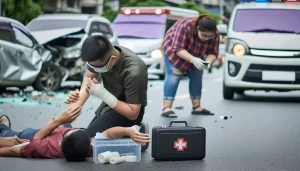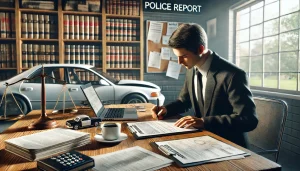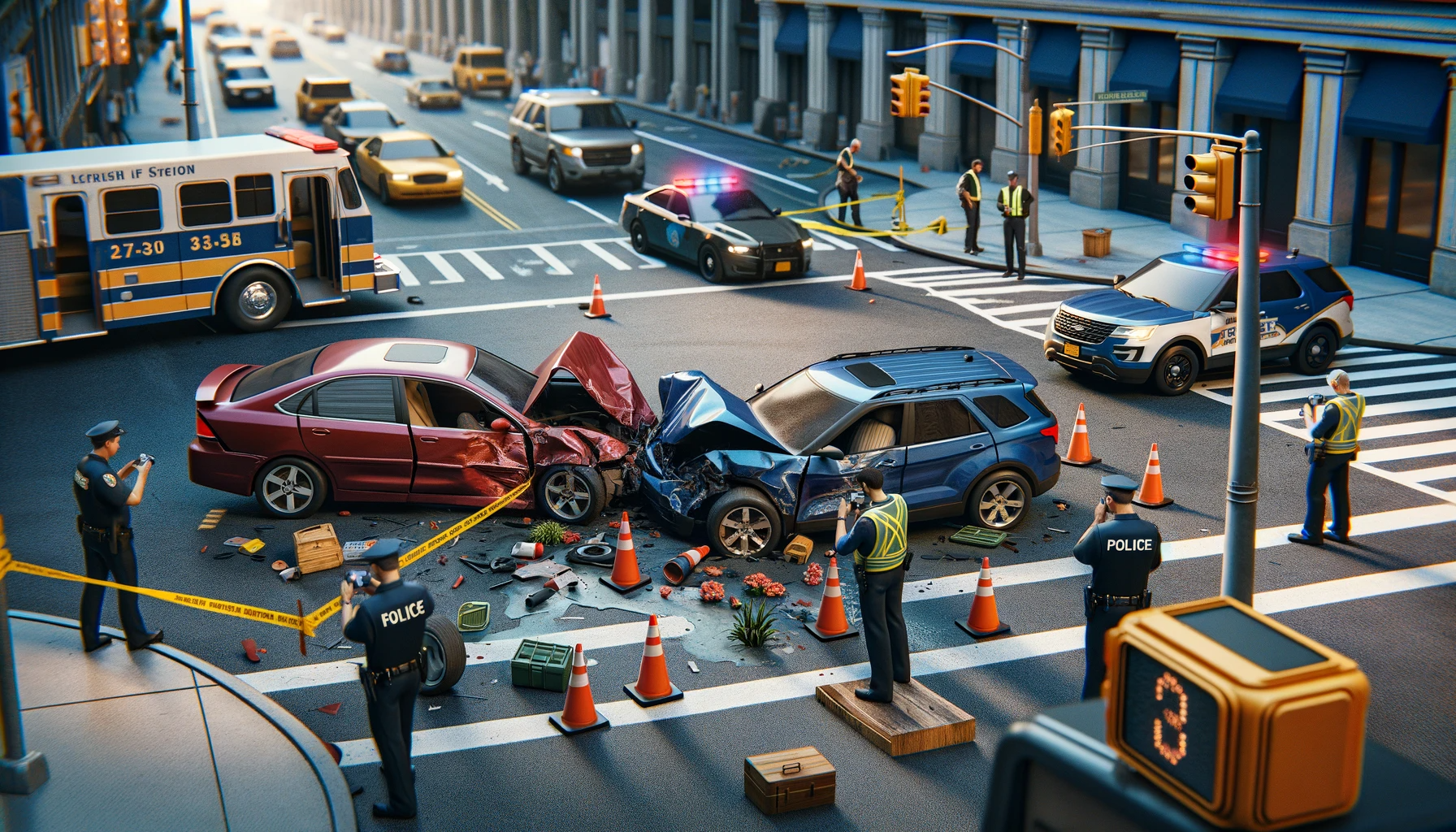Legal Resources: Steps to Take After an Uninsured Car Accident
Introduction
Car accidents are stressful, but the situation becomes even more complicated when the at-fault driver is uninsured. You might find yourself worrying about how to cover medical expenses, car repairs, or other damages without proper financial backing from the other party. But don’t worry—there are steps you can take to protect yourself legally and financially.
In this article, we’ll walk you through the essential steps to take after being involved in an uninsured
car accident, from documenting the scene to exploring legal options for recovering damages.
Immediate Actions After an Uninsured Car Accident
Ensure Safety and Call Emergency Services
Your safety and the safety of others is the top priority after any
car accident. First, make sure to pull over to a safe location if possible, and check for
injuries. Even if the accident seems minor, call 911 to report the incident and request medical assistance if necessary. Emergency services will also create an official report, which will be critical for any legal or insurance claims.

Gather Important Information
While it may seem overwhelming at the moment, gathering as much information as possible is essential. Exchange contact details with the other driver, even if they don’t have insurance. Get their name, phone number, driver’s license number, and vehicle registration details. Also, collect contact information from any witnesses at the scene.
Document the Accident Scene
Take photos and videos of the accident scene, including the damage to both vehicles, road conditions, traffic signs, and any visible
injuries. This documentation will be useful for your insurance claim and any potential legal action.
Definition of an Uninsured Motorist
An uninsured motorist is any driver who operates a vehicle without the minimum required insurance coverage set by state law. In some cases, they might have expired insurance or could be driving without a valid policy altogether.
Common Reasons for Lack of Insurance
There are several reasons why a driver might be uninsured. Some common factors include financial difficulties, lapses in policy renewals, or even intentional disregard for the law. Regardless of the reason, driving without insurance is illegal and poses significant risks for other drivers.
Legal Implications of an Uninsured Car Accident
How Uninsured Motorists Violate State Laws
In the majority of states, driving without car insurance is illegal. Uninsured drivers are violating state laws that require minimum liability coverage to protect other drivers and pedestrians on the road.
Penalties for Driving Uninsured
Penalties for driving uninsured can range from fines and license suspension to vehicle impoundment. In some cases, uninsured motorists may also face civil liability if they cause an accident, putting them at risk of lawsuits and financial ruin.
Reporting the Accident to the Authorities
Filing a Police Report
After an uninsured accident, it’s crucial to file a police report. The report will provide an official account of the incident, which can serve as vital evidence in both insurance claims and potential legal actions.
What Information Should Be Included in the Report?
When reporting the accident to the police, be sure to include the other driver’s lack of insurance, a detailed description of the accident, and any visible
injuries or damages. The more detailed the report, the stronger your case will be later.
Dealing with Your Insurance Company
The Role of Uninsured Motorist Coverage (UMC)
If you’ve purchased uninsured motorist coverage (UMC) as part of your car insurance policy, you’re in a much better position. This type of coverage is designed to protect you in the event of an accident with an uninsured driver. It can help cover medical bills, vehicle repairs, and other expenses.
Filing a Claim Under Your UMC
To initiate a claim under your uninsured motorist coverage, contact your insurance company as soon as possible. Provide them with the police report, photos, and any other documentation of the accident. Your insurer will walk you through the process of filing a claim and determining compensation.
Seeking Legal Assistance
When to Contact a Car Accident Attorney
If you’re facing significant expenses or the other party refuses to cooperate, it’s time to consult a
car accident attorney. A lawyer can guide you through the legal process, helping you navigate the complexities of uninsured motorist claims and lawsuits.
How Attorneys Can Help in Uninsured Accident Cases
An experienced attorney can assist you in negotiating with your insurance company, gathering evidence for a lawsuit, and representing you in court if necessary. They will also help you explore legal avenues for recovering damages from the uninsured driver.
Legal Options for Recovering Damages
Filing a Lawsuit Against the Uninsured Driver
In some cases, you may need to file a lawsuit against the uninsured driver to recover your losses. This process involves suing them in civil court for medical expenses, vehicle repairs, and other damages. Keep in mind, however, that if the driver has no assets, recovering funds may be challenging.

Alternative Options: Small Claims Court
If the damages are relatively small, you might consider taking the case to small claims court. This is a simpler, more affordable legal route, and can be effective in recovering some of your losses.
Financial Implications of an Uninsured Accident
Covering Medical Bills
Without the other driver’s insurance, you may be left covering medical expenses out of pocket. However, your own health insurance or uninsured motorist coverage can help reduce these costs.
Repairing Your Vehicle
The financial burden of repairing your vehicle can be overwhelming after an uninsured accident. Be sure to work with your insurance company to explore your coverage options and avoid paying for repairs entirely out of pocket.
Conclusion
Being involved in an uninsured
car accident is stressful, but there are steps you can take to protect yourself. From reporting the accident to filing a claim under your uninsured motorist coverage, these actions will help you recover financially and legally. Additionally, seeking legal advice can guide you through the complexities of dealing with an uninsured driver. By following these steps, you can minimize the impact of the accident and move forward with confidence.
Look for an attorney who has the right legal resources for your legal needs.
Contact us here on the
Warmuth Law website or through our hotline 888-517-9888.
Frequently Asked Questions (FAQ's)
1. What if the uninsured driver refuses to pay?
If the uninsured driver refuses to pay for damages, you can take legal action by filing a lawsuit or pursuing the case in small claims court.
2. Can I sue an uninsured driver even if they have no assets?
Yes, you can sue, but collecting damages from an uninsured driver without assets can be difficult. Legal advice can help determine the best course of action.
3. Does my insurance cover rental cars after an uninsured accident?
This depends on your insurance policy. Some policies include coverage for rental cars, while others may require an additional rider.
4. How long do I have to file a claim for an uninsured accident?
The time frame varies by state, but most states have a statute of limitations ranging from two to three years.
5. What should I do if the other driver fled the scene?
If the other driver fled, file a police report immediately and provide as much detail as possible about the fleeing vehicle. Your uninsured motorist coverage may still apply.













